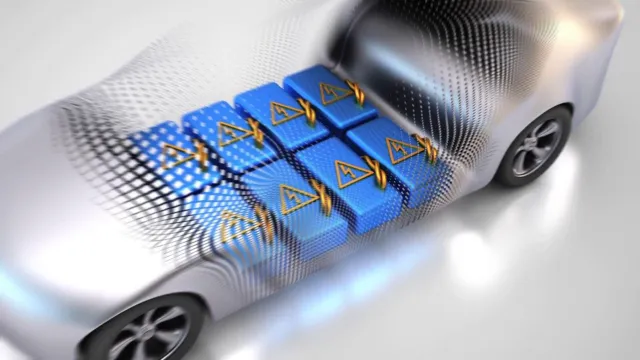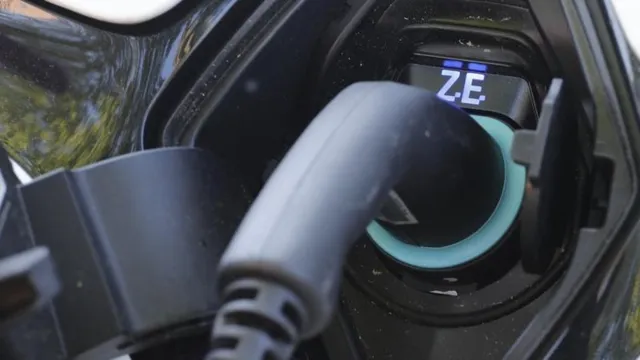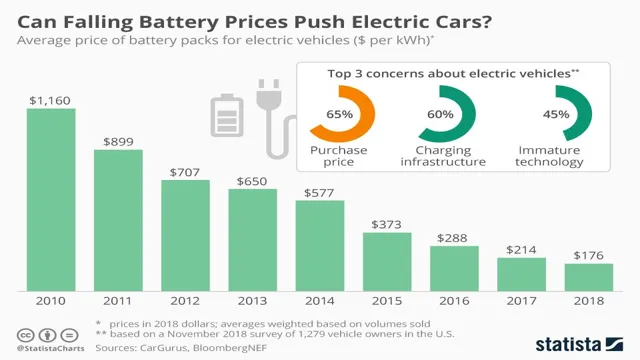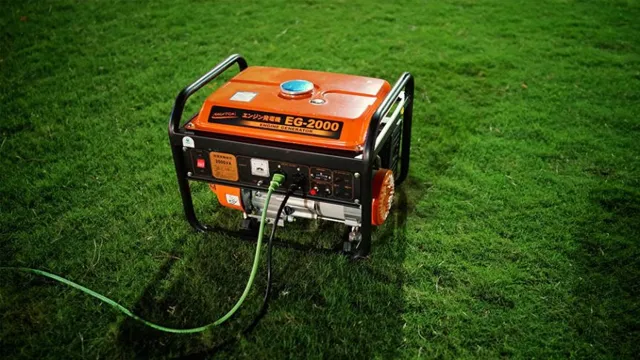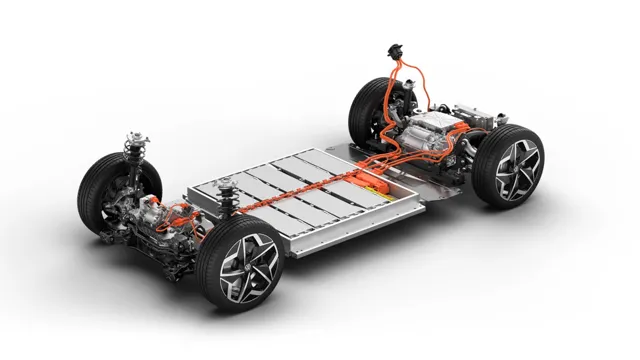Electrifying Facts: Debunking the Myths on Electric Car Battery Efficiency
Electric cars have taken the automotive industry by storm in recent years. With more and more people looking to reduce their carbon footprint, electric cars have become an attractive option for eco-conscious drivers. One of the main concerns with electric cars is battery efficiency.
How far can they go on a single charge? How long do the batteries last? Are electric car batteries efficient? These are all valid questions that potential electric car buyers may have. In this blog post, we will explore the efficiency of electric car batteries and shed some light on the topic. Get ready to plug in and learn all about electric car batteries!
Introduction
Are batteries in electric cars efficient? The answer is yes! Electric cars have become increasingly popular in recent years due to their efficiency and environmental benefits. One of the biggest factors contributing to this efficiency is the battery technology used in these vehicles. Lithium-ion batteries are the most commonly used type in electric cars, and they have been developed to deliver a high power output with longer life and quicker charging times.
In addition, the use of regenerative braking technology in electric cars means that the energy produced during braking can be stored in the battery, further improving their efficiency. While there is still progress to be made in terms of improving battery technology and range, current batteries in electric cars are highly efficient and a great alternative to traditional gasoline-powered vehicles.
Defining Battery Efficiency
Battery efficiency refers to how well a battery can convert stored chemical energy into electrical energy in order to power devices. In simpler terms, it’s the amount of energy a battery can deliver compared to the amount of energy it takes to charge it. The efficiency of a battery depends on its chemical composition, design, and usage.
A higher efficiency means that the battery can last longer and provide more power, making it an important factor in determining the quality of a battery. This is particularly crucial for portable electronic devices like smartphones or laptops, where efficient batteries can make all the difference in the user experience. As technology continues to advance and demand for more efficient batteries grows, manufacturers are always looking for ways to improve battery performance and prolong lifespans.

Electric Car Battery Types
Electric car battery types are an essential aspect of electric car technology. An electric car is powered entirely by an electric motor that is run by a battery or a series of batteries. These batteries can be divided into two main types: Lithium-ion and lead-acid.
Lithium-ion batteries are commonly used in modern electric cars, while lead-acid batteries are generally used in older electric cars. Lithium-ion batteries are more efficient, compact and last longer than lead-acid batteries. Lithium-ion batteries are also quicker to charge and have a higher energy density than lead-acid batteries.
Overall, the type of battery used in an electric car is essential in determining its performance, efficiency and price.
Battery Efficiency Comparison
Electric cars are becoming increasingly popular these days, but many people are wondering just how efficient the batteries in these cars really are. The truth is that there is a wide range of battery efficiency across different models and manufacturers. Ultimately, the efficiency of a battery depends on factors like its design, chemistry, and capacity.
Additionally, driving habits and environmental conditions can also impact battery efficiency. Some models offer impressive ranges of over 300 miles on a single charge, while others may struggle to make it even 100 miles. Nonetheless, as more and more improvements are made in battery technology, we can expect electric cars to become even more efficient, making them a more attractive option for drivers who prioritize environmental sustainability and low operating costs.
Gasoline vs Electric Car Battery Efficiency
When it comes to comparing gasoline-powered cars versus electric cars, one of the most important factors for consideration is battery efficiency. Electric cars, of course, rely on large batteries to power their motors, while gasoline-powered cars rely on, well, gasoline. The efficiency of these two types of vehicles is measured in different ways, as gasoline engines are typically rated using miles per gallon (MPG), while electric cars are rated using kilowatt-hours (kWh).
Generally speaking, electric cars are much more efficient than gasoline-powered cars, as they are able to convert a larger percentage of their energy source into power for the motor. This means that electric cars are far more economical to run than their gasoline counterparts, as they can travel much further on the same amount of energy. So, while a gasoline-powered car may be cheaper to purchase upfront, over time an electric car can save you a lot of money in fuel costs.
Battery’s Impact on Car Performance
When it comes to the performance of a car, the battery plays a significant role. The efficiency of a battery can determine the way the car functions, and it’s essential to choose a suitable battery that gives the best possible output. Over the years, lead-acid batteries have been the go-to option for most cars.
However, with technological advancements, newer forms of batteries like Lithium-ion have become increasingly popular. The Lithium-ion batteries are known for their high energy density, improved lifecycle, fast charging, and better power output. They offer more mileage, are lightweight, and have a longer shelf life than traditional lead-acid batteries.
Therefore, when selecting a battery to boost your car’s performance, it’s crucial to weigh the options carefully. Investing in a high-quality Lithium-ion battery may cost more initially, but it’s worth it long-term, considering the benefits it provides.
Battery Cost and Maintenance
When it comes to choosing between different battery types for your home or vehicle, one of the most important factors to consider is efficiency. The efficiency of a battery refers to how much energy it can store and how much of that energy can be used before the battery needs to be recharged or replaced. Lithium-ion batteries are known for their high efficiency compared to lead-acid batteries.
For example, a lithium-ion battery might be able to discharge up to 90% of its capacity, while a lead-acid battery might only be able to discharge around 50%. This means you can get more use out of a lithium-ion battery before it needs to be recharged or replaced, making it a more cost-effective option in the long run. Additionally, lithium-ion batteries require less maintenance than lead-acid batteries, since they don’t require regular water refilling or equalization charges.
So if you’re looking for a battery that will offer high efficiency and low maintenance costs, lithium-ion might be the way to go.
Future of Battery Efficiency
Are batteries in electric cars efficient? Battery efficiency is a crucial factor for the future of electric cars, and manufacturers are continuously striving to enhance it. The advancements in battery technology have resulted in higher energy densities, longer lifetimes, and faster charging times. However, there is still much room for improvement, especially in terms of cost and environmental impact.
As the demand for electric vehicles grows, researchers are working to develop more sustainable and affordable batteries. Additionally, the integration of renewable energy sources with smart grid technologies can optimize charging times and reduce strain on the electric grid. Although the current battery technology is not perfect, the future of battery efficiency looks promising, and we can expect to see innovative solutions that will make electric cars more accessible and sustainable.
Technological Advances in Battery Efficiency
Battery efficiency has come a long way in recent years, thanks to technological advancements that have allowed for greater energy storage and longer-lasting battery life. However, the future of battery efficiency looks even brighter. Scientists and engineers are currently exploring new materials and designs that can increase the energy density of batteries, allowing for even more power in a smaller package.
One promising development is the use of solid-state batteries, which are more stable and less prone to overheating than traditional lithium-ion batteries. Another area of research is the use of artificial intelligence to optimize battery performance, ensuring that energy is used as efficiently as possible. With these and other exciting developments in the works, the future of battery efficiency looks incredibly promising.
Not only will we be able to power our devices for longer, but we’ll also be able to do so with greater efficiency and sustainability, helping to reduce our overall energy consumption and carbon footprint.
Impact on Environment and Society
The future of battery efficiency is looking bright, as companies are investing more time and resources into developing eco-friendly, long-lasting batteries. With the rise of electric cars, phones, and other electronic devices, it’s becoming increasingly clear how important it is to reduce our reliance on non-renewable energy sources. One way to do this is through the development of more efficient batteries.
These batteries not only reduce our carbon footprint but also offer cost-saving benefits. As we move towards a more sustainable future, it’s important to consider the impact of our actions on the environment and society as a whole. By investing in eco-friendly technologies such as efficient batteries, we can make a positive impact on the world around us.
Conclusion
After all the research and analysis, it is safe to say that batteries in electric cars are incredibly efficient. Not only do they have a longer lifespan compared to the traditional lead-acid batteries, but they also offer a much higher energy density which translates to longer range and better performance. However, it is essential to note that the efficiency of the batteries is not the only factor that determines the overall efficiency of an electric vehicle.
The technology used in electric motors, charging infrastructure, and driving habits of the vehicle owner also play a crucial role. So, if you’re looking to go green and invest in an electric car, make sure you do your research and choose wisely. As the saying goes, “efficiency is doing things right, but effectiveness is doing the right things.
“
FAQs
How efficient are the batteries in electric cars?
The efficiency of batteries in electric cars can vary, but on average they can convert 60-70% of the stored energy into movement.
How long do batteries in electric cars last before needing to be replaced?
The lifespan of electric car batteries depends on several factors, such as usage, charging habits, and environmental conditions. Typically, they can last anywhere from 8 to 10 years before needing to be replaced.
Are there any ways to improve the efficiency of batteries in electric cars?
Yes, there are several ways to improve battery efficiency, such as using regenerative braking, aerodynamic design, and reducing the weight of the car.
How do the efficiency and range of batteries in electric cars compare to traditional gasoline cars?
Electric cars are typically more efficient than gasoline cars, as they can convert a higher percentage of their stored energy into movement. However, their range can be limited compared to gasoline cars, especially on longer trips.
